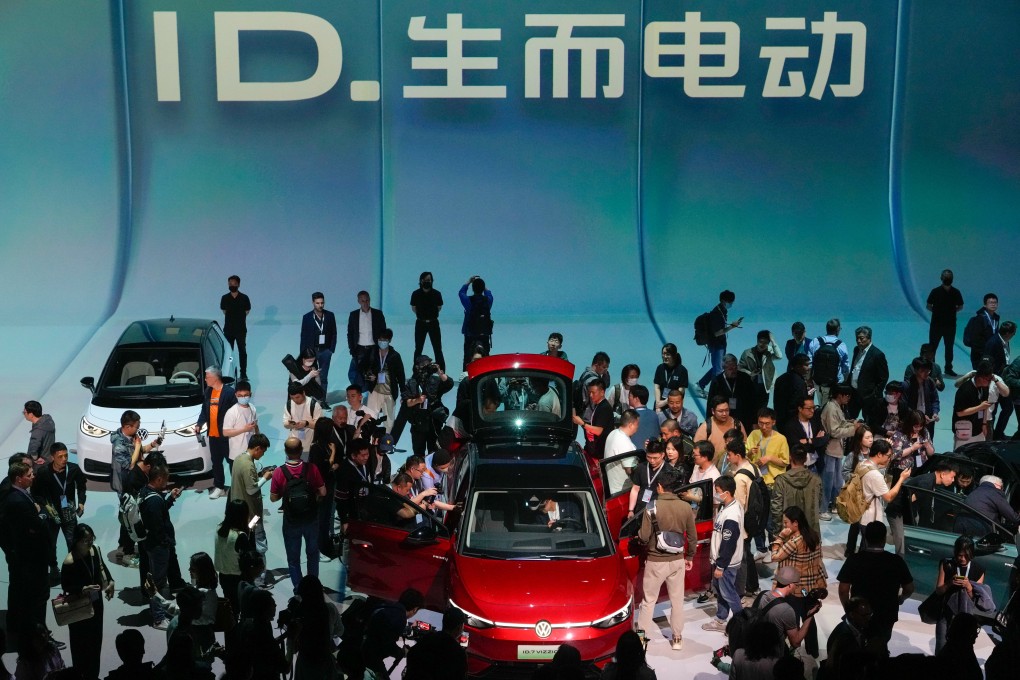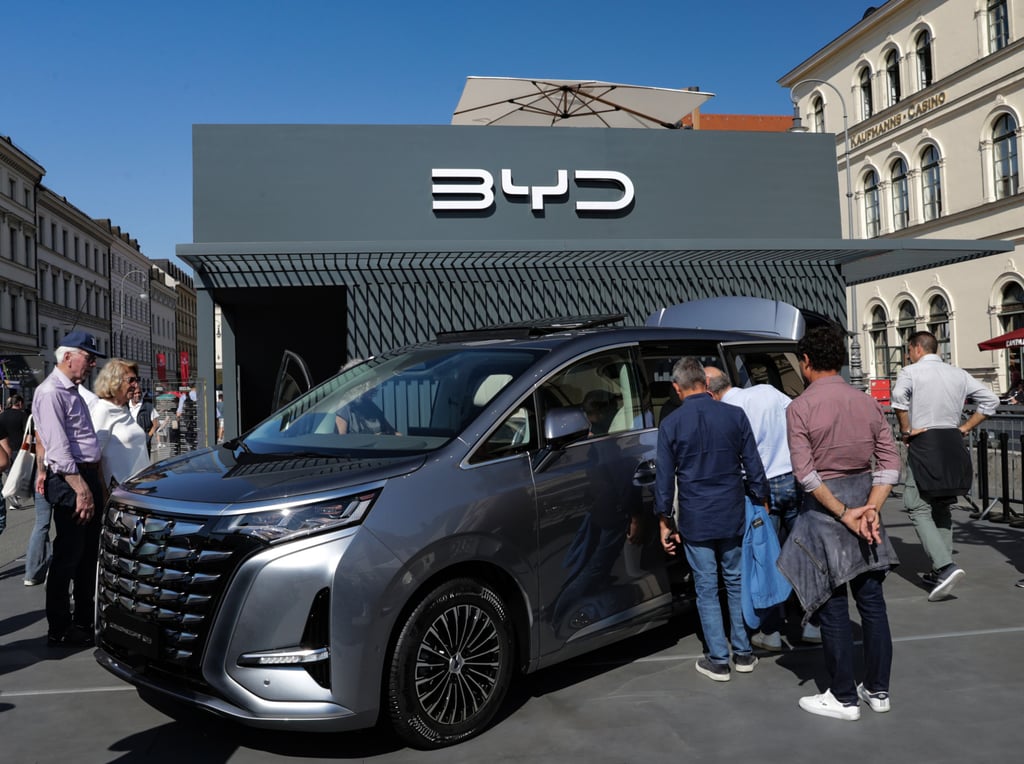VW and GM lose ground to Chinese EV makers as petrol-heavy line-ups fall out of favour in world’s largest car market
- VW’s sales in mainland China and Hong Kong rose 1.2 per cent year on year in a market that grew 5.6 per cent overall
- GM China’s 2022 deliveries fell 8.7 per cent to 2.1 million, the first time since 2009 its mainland China sales fell below its US deliveries

VW reported on Tuesday that it delivered 3.24 million units in mainland China and Hong Kong last year, a relatively weak 1.2 per cent year-on-year increase in a market that grew 5.6 per cent overall.
The German company sold 23.2 per cent more pure electric cars in mainland China and Hong Kong than it did in 2022, but the total was only 191,800. Meanwhile, the mainland EV market jumped 37 per cent last year, with deliveries of pure electric and plug-in hybrid cars hitting 8.9 million units.

“We are tailoring our portfolio to the needs of Chinese customers,” Ralf Brandstatter, a VW group board member for China, said in a statement. “While the situation will remain demanding over the next two years, we are further developing our technological capabilities and setting up our business for the future.”
